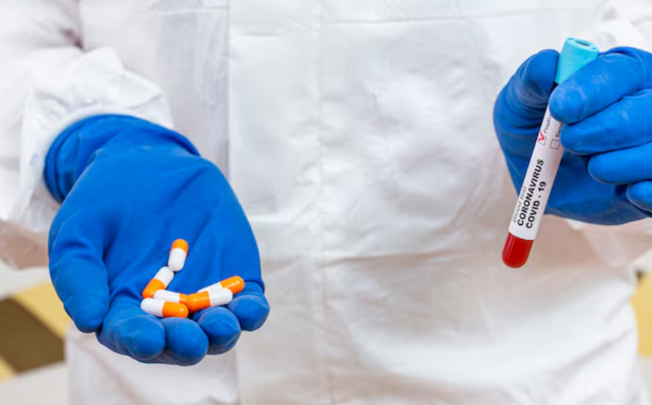Treatment Overview
Urinary Tract Infections (UTIs) are among the most common infections affecting women globally. While antibiotics are the standard treatment, antibiotic resistance has become a significant challenge. In Korea, UTI Antibiotic Resistance Testing is a vital step in personalized treatment plans, ensuring that antibiotics prescribed are both effective and safe.
Antibiotic resistance testing involves identifying the specific bacteria causing the infection and determining which antibiotics will effectively eliminate them. Korean clinics utilize advanced microbiology laboratories and state-of-the-art testing methods to ensure precise diagnosis. This is crucial in preventing recurrent infections, minimizing unnecessary antibiotic use, and curbing the rise of resistant bacteria.
Korea’s healthcare system emphasizes both precision medicine and preventive care, making it a leading destination for UTI management and antibiotic resistance testing.
Purpose & Benefits
The purpose of UTI antibiotic resistance testing is to ensure targeted treatment by identifying the most effective antibiotic for a particular infection.
Key benefits include:
- Accurate treatment: Avoids the trial-and-error method, which can prolong infection and increase resistance.
- Reduced recurrence: Ensures complete elimination of infection-causing bacteria.
- Minimized side effects: Prevents unnecessary exposure to ineffective antibiotics.
- Slows resistance development: Responsible use of antibiotics helps combat global resistance trends.
- Optimized recovery: Faster resolution of symptoms and reduced discomfort.
In Korea, testing is an integral part of UTI care, particularly for patients with recurrent UTIs or those who have not responded to prior antibiotic therapy.
Ideal Candidates
UTI antibiotic resistance testing is recommended for:
- Women with recurrent urinary tract infections.
- Patients who have had multiple antibiotic treatments without resolution.
- Individuals with chronic urinary symptoms such as frequent urination or pelvic pain.
- Patients with complicated UTIs, including kidney involvement.
- Women with a history of antibiotic allergies who require careful selection of medication.
Korean hospitals provide specialized care for both residents and international patients, with services tailored to cultural needs and language preferences.
Possible Risks & Complications
Antibiotic resistance testing is generally safe, as it involves non-invasive urine sampling and laboratory analysis. Potential minor risks include:
- Slight discomfort during urine collection.
- Rare contamination of the sample leading to repeat testing.
- Delay in treatment due to time required for culture and sensitivity analysis (usually 24–48 hours).
Korean clinics minimize risks through careful sample handling, sterile collection methods, and rapid testing protocols.
Techniques & Diagnostic Methods Used
Korean clinics employ advanced microbiology techniques to ensure accuracy in UTI antibiotic resistance testing:
1. Urine Culture:
Identifies the exact bacteria causing the UTI.
2. Antibiotic Sensitivity Testing:
Determines which antibiotics the bacteria are susceptible or resistant to, using methods such as disk diffusion and automated MIC (minimum inhibitory concentration) testing.
3. Molecular Testing:
Some advanced centers in Korea use PCR and gene sequencing to detect resistance genes, enabling faster and more precise treatment decisions.
4. Automated Laboratory Systems:
High-throughput machines ensure rapid processing of samples with minimal error.
Korea’s commitment to advanced diagnostics means results are delivered quickly and with high reliability, which is crucial for timely treatment.
Recovery & Aftercare
Following antibiotic resistance testing, doctors prescribe the most effective antibiotic based on results. Recovery timelines depend on the infection severity and patient health. Most uncomplicated UTIs resolve within a few days of targeted therapy.
Aftercare includes:
- Completing the prescribed antibiotic course.
- Drinking plenty of fluids to flush bacteria from the urinary tract.
- Following up with repeat urine tests if symptoms persist.
- Implementing preventive measures such as proper hygiene and dietary adjustments.
Korean clinics often offer follow-up consultations to ensure full recovery and to prevent recurrence.
Results & Longevity
The results of antibiotic resistance testing typically take 24–48 hours. This testing ensures long-term benefits by:
- Preventing recurrent infections.
- Minimizing the risk of antibiotic resistance spreading.
- Promoting targeted treatment rather than broad-spectrum antibiotic use.
For patients with chronic or recurrent UTIs, periodic resistance testing may be recommended to maintain urinary health.
Treatment Process in Korea
UTI antibiotic resistance testing in Korea is structured for efficiency and precision:
- Initial Consultation: Specialist consultation to review symptoms and medical history.
- Urine Sample Collection: Non-invasive urine sample collected in a sterile environment.
- Laboratory Testing: Culture and sensitivity testing, sometimes supported by molecular diagnostics.
- Diagnosis & Prescription: Doctor reviews results and prescribes the most effective antibiotic.
- Follow-Up Care: Monitoring for symptom resolution and repeat testing if necessary.
Korean hospitals combine rapid diagnostics, advanced laboratory technology, and personalized patient care, making them a top choice for UTI antibiotic resistance evaluation.
Why Korea Is a Top Destination for UTI Antibiotic Resistance Testing
Korea offers unmatched advantages:
- State-of-the-art laboratories with advanced microbiology capabilities.
- Experienced specialists in urology and gynecology.
- Integrated diagnostic systems for faster results.
- Patient-centered care with multilingual services.
- Affordable and transparent pricing compared to other developed countries.
These qualities make Korea a global leader in urinary tract infection management.
Cost Range
The cost of antibiotic resistance testing in Korea varies:
- Basic urine culture: ₩50,000–₩100,000 KRW ($40–$80 USD).
- Antibiotic sensitivity testing: ₩100,000–₩200,000 KRW ($80–$160 USD).
- Comprehensive UTI antibiotic resistance testing package: ₩200,000–₩400,000 KRW ($150–$300 USD).
Many hospitals offer packages that combine testing, consultation, and follow-up for a fixed cost, ensuring convenience and cost-effectiveness.
Popular Clinics in Korea
- Samsung Medical Center – Urology Department, Seoul
- Asan Medical Center – Comprehensive Women’s Health Care
- CHA Bundang Women’s Hospital – UTI & Gynecology Services
- Severance Hospital, Yonsei University – Urology and Infectious Disease Care
- Ewha Womans University Medical Center – Women’s Health Clinic
These institutions are renowned for their advanced testing capabilities, specialized care, and patient-friendly services for both local and international patients.




